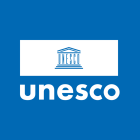Addressing the human capacity gap in the water sector in Africa
Discussion details
More than a quarter of the population in parts of Africa do not have sufficient access to safe water and sanitation. In some critical areas, this number is more than half.
Years of work have gone into improving delivery, acquiring finance and training people in the water sector; all of which are necessary to provide sustainable access to water and sanitation. We now know how to sustainably address the challenges of delivery and finance, but the most difficult challenge remains: there are not sufficient people - engineers, technicians, trainers and management - who have the right skills and capacities to do their job. How many people are needed? We don’t know. Which specific skills and capacities are required? We don’t know. We don’t know because there is no reliable information on what, and how large, these gaps in human capacity actually are. This problem grew to such an extent that in 2013, the African Union and the African Ministers for Water announced the need to create a Human Capacity Development Programme. This task was given to the African Union’s NEPAD Networks of Water Centres of Excellence.
The Water Centres of Excellence are universities in different regions of Africa who, with the support from the European Union and in collaboration with UNESCO, are identifying and addressing the main gaps in human capacity. The Centres of Excellence are therefore analyzing existing information, conducting surveys, and consulting with a wide range of stakeholders including government representatives, educational institutions, local services, consumers, public health authorities and actors within the private sector.
With support from African governments and in partnership with African Universities and training institutions, UNESCO and the Centres of Excellence are developing programs to provide the missing Professional, Technical and Vocational Skills and Capacities to men and women entering into the water sector.
By addressing these Gaps in human capacity, People will be able to put infrastructure and finances to work more effectively in the Water Sector and provide more sustainable Access to Water and Sanitation for People on the Continent.

Log in with your EU Login account to post or comment on the platform.